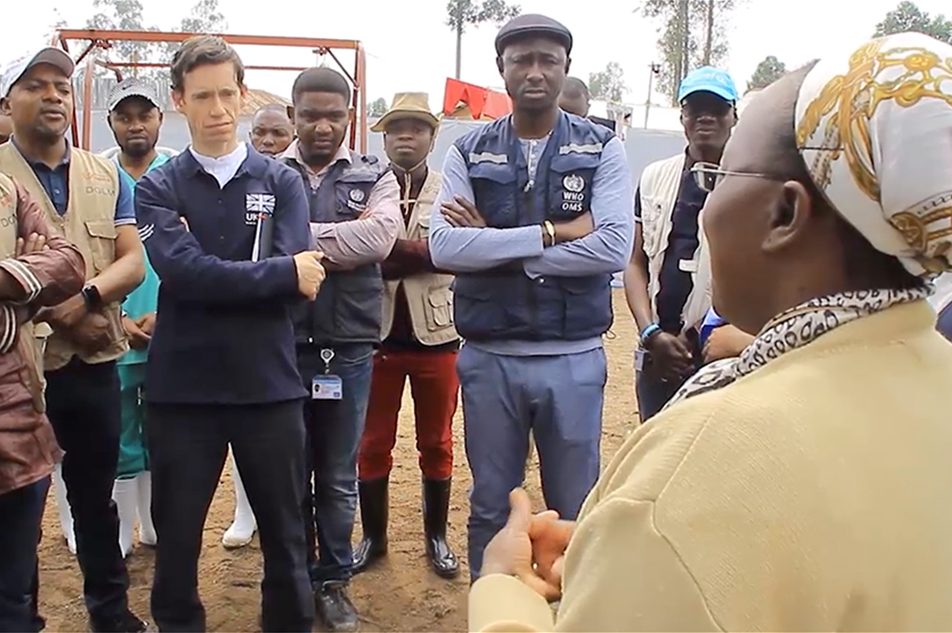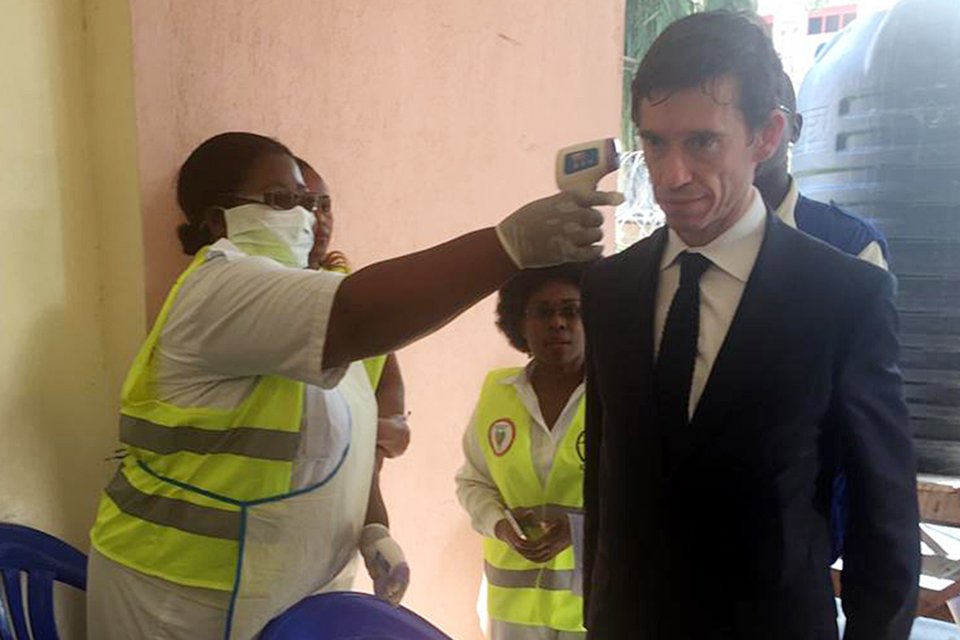
International Development Secretary Rory Stewart's visit to the east of the Democratic Republic of Congo to see how UK aid is helping to tackle an Ebola outbreak has had widespread pick-up in the media.
The outbreak – the world’s second worst ever – has killed over 1,600 people in the North Kivu and Ituri provinces in eastern DRC, since it started in August last year.
Journalists from The BBC and The Guardian accompanied the Secretary of State on his visit - his first to Africa in the role - during which he talked to Ebola survivors and saw how current patients were receiving treatment in a UK aid funded clinic in Katwa, near the city of Butembo.
He also witnessed a vaccination clinic set up hours after the death of a woman from Ebola to treat people, such as her family and neighbours, who were in contact with her before she died.
The BBC ran interviews with the International Development Secretary on the Today programme on Radio 4, The News at One on BBC1 and the 6 O' Clock News on Radio 4.
During the interviews he called on other countries, including France, to provide more financial support to the ongoing outbreak. The UK and the US have so far been the biggest donors.
The BBC's Diplomatic Editor James Landale, who visited the DRC with the Secretary of State, also wrote an extensive online first person piece about how UK aid was helping to tackle the outbreak:
In the piece he writes:
With Mr Stewart, I visited an Ebola treatment clinic at Goma hospital that is being partly funded by the British government. There is also another clinic being built on the other side of town.
But the minister clearly believes the levels of preparedness need to be stepped up and is urging countries like France, Germany and Canada to provide badly needed resources.
The BBC reporter also posted a video explaining how a simple change in the design of body bags used in the region were helping to save lives.

Patrick Wintour, of The Guardian, also on the visit, wrote in his piece about the urgent need to tackle the crisis and the International Development Secretary's call for other countries to step up to help.
He quotes Mr Stewart saying:
We are on the edge with this crisis. We keep pulling it back from the brink but it is very dangerous. The very worst-case scenario is if it broke out of the numbers that you could vaccinate.
We are critically short of money...It is a very expensive response because the local systems are simply not there. We cannot move from one area to another and say it is solved. It keeps coming out of the periphery again and jumping 300km north. The money is central.
MailOnline, The Telegraph and The Voice also picked up on the visit, quoting the Secretary of State at length.
In a piece published on gov.uk the International Development Secretary says:
There is a real danger, that if we lose control of this outbreak, it could spread beyond DRC’s borders to the wider region and the wider world. Diseases like Ebola have no respect for borders and are a threat to us all.
This has to be dealt with. We have to grip this. If we don’t we are facing not just needless horrifying suffering here in DRC, but also the possibility of this disease spreading further afield.
1 comment
Comment by Naeem ulfateh posted on
Great work by a great leadership.